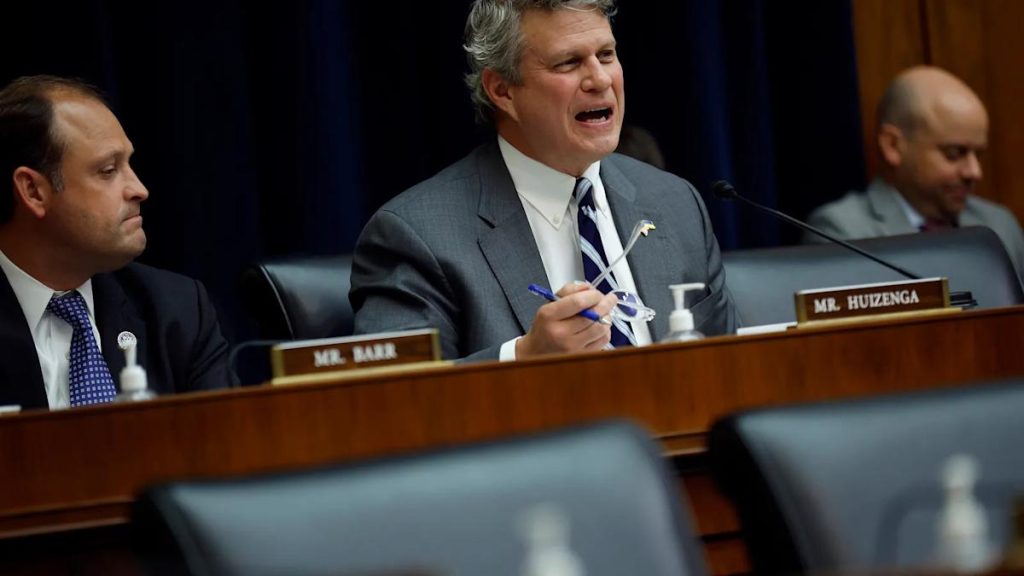
This story was originally published on Payments Dive. To receive daily news and insights, subscribe to our free daily Payments Dive newsletter.
Republicans on the House Financial Services Committee are seeking to reverse a late 2023 Federal Reserve decision that would cut fees that large financial institutions can charge merchants when consumers use debit cards to pay for goods and services.
The 14 Republicans, including the committee’s chairman, Rep. French Hill, wrote to Fed Chairman Jerome Powell late last month to urge him to “withdraw” the proposal, saying that a reduction in the amount the banks that issue the cards can collect would hurt smaller banks, boost other fees and undercut fraud prevention. It was one of several recommendations the group made regarding banking regulations.
A Fed spokesperson said the central bank had received the letter and planned to respond, declining to comment beyond that statement.
In October 2023, the Federal Reserve Board voted to propose lowering the base debit fee rate that financial institutions with more than $10 billion can charge on debit card transactions by about a third, to 14.4 cents from 21 cents, according to the proposal memo from the Fed’s staff.
The fee cap hasn’t been changed since it was introduced in 2011. Still, the Republicans argue that because the proposed rate was derived from a Fed analysis of all card issuers’ costs, the new fee is likely to have a lopsided impact.
“Since the proposal would update the maximum interchange fee based on average costs for all financial institutions with over $10 billion in assets, it would likely place smaller debit card issuers at a significant competitive disadvantage since they do not have the efficiencies of scale that larger issuers possess,” the Republicans’ March 28 letter said.
Currently, the cap is set at 21 cents plus 0.05% of the value of the debit transaction, in addition to a one-cent fraud-prevention adjustment.
The House members also contended in the letter that the proposal would “likely result in banks increasing other account fees to make up for lost revenue from debit interchange fees.”
The Fed proposal has faced significant pushback since it was floated in 2023. While retail and merchant groups have long called for lower debit card fee charges, they viewed the latest proposal as a step in the right direction that didn’t go far enough. Meanwhile, banks and credit unions have lambasted the Fed’s proposal as overly burdensome to financial institutions.
